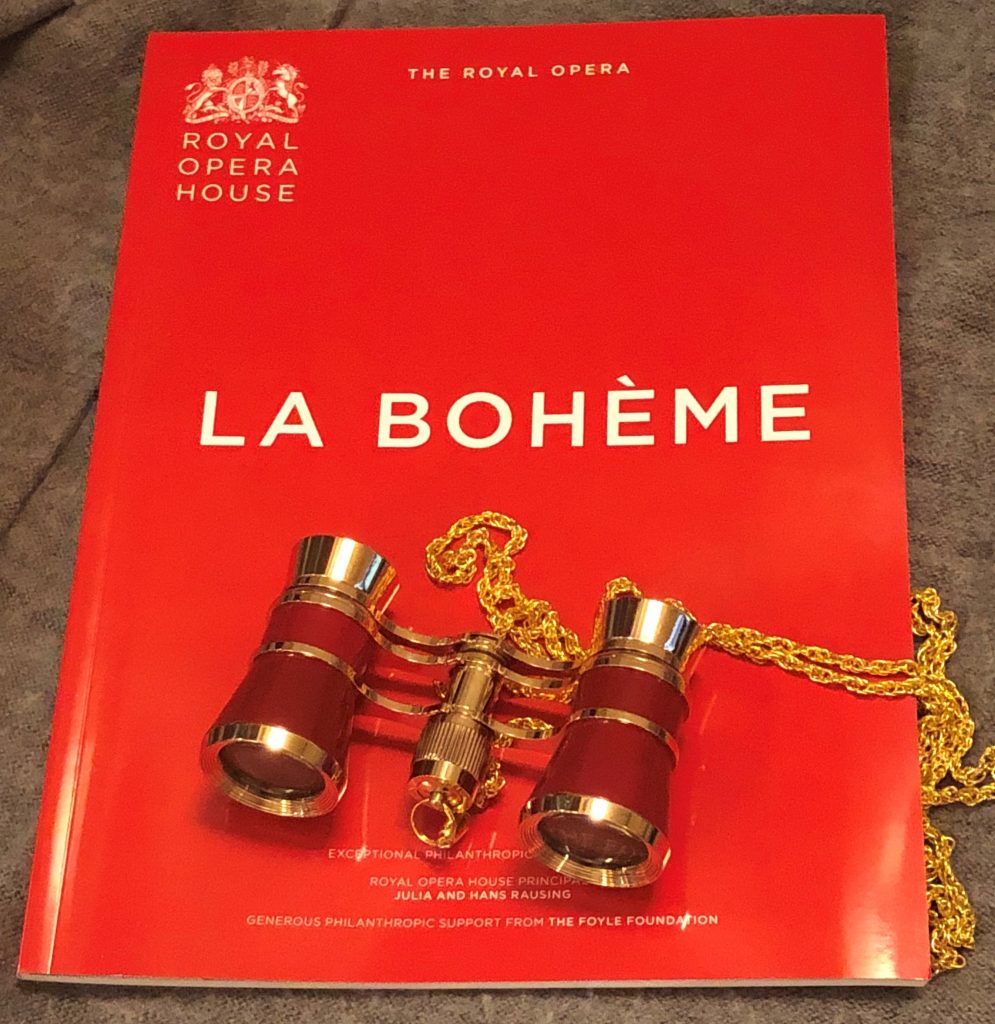Great Stories Happen When Ordinary People Make Bad Decisions

Great Stories Happen When Ordinary People Make Bad Decisions
The most compelling stories involve ordinary people making bad decisions.
TV dramas are full of it, so are films and popular fiction. We love to see people similar to ourselves getting things wrong. Audiences in the 19th century were no different – they just didn’t have Netflix. So Puccini stepped up with his opera. La Bohème (1896), which I saw at London’s Royal Opera House last night, stands out among operas for many reasons. One is that it concerns ordinary people.
There are no dukes or princesses. The story concerns four lads who are flatmates in Paris. They are a writer, a painter, a musician and a philosopher. They are not successful. They don’t have much food and the heating isn’t on. The only one to get any paid work is the musician and he has some not-great clients, like the man who hires him to play the violin “until the parrot dies”. They drink when they can, run away from bars without paying the bill, avoid their landlord, pick up girls and fall out with them.
Rodolfo, a poet and the writer of one play (which he throws on the fire) has a chance meeting with his neighbour Mimi. She’s also poor. She lives in the same terrible building and makes a meagre living embroidering flowers on textiles. They fall in love with each other immediately, as young people will. Mimi has no light for her candle, so she calls on her upstairs neighbour Rodolfo. Then she loses her key. They are thrown together, they are both beautiful, and their lives are full of appealing fragility. Of course they fall in love on the spot. What could go wrong?
But Mimi hasn’t revealed that she’s fatally ill with TB. That’s no ordinary cough; she’s dying. When Rodolfo finds out, he’s already in love. He sees that his poverty and cold, damp flat are further endangering her health, so he breaks up with her. But he doesn’t want to say that straight out, so he pretends that the break-up is because she flirts with other men. Bad decisions and miscommunication all round. When she’s in the final stages of her illness and desperate to see Rodolfo, she turns up at his place one last time. He and all his friends make a great, well-meaning fuss of procuring and preparing medicine. But while they are busy with the medicine, Mimi dies, right there on the floor in front of the stove. And Rodolfo doesn’t even see it happen, he doesn’t have his arms around her at the final moment. He was looking the other way.
There’s still time to see La Bohème at the Royal Opera House, it’s on until 16 February. There’s a very good essay in the programme about young love, by Dr Melanie Marshall. There are also lots of educational videos concerning La Bohème on YouTube, which are extremely helpful if you’re about to see it for the first time.
https://www.roh.org.uk/tickets-and-events/la-boheme-by-richard-jones-details
#storytelling #love #romance #music #opera #consumerinsights #culture #marketing #decisionmaking #communication #tv #film #movies #fiction #drama #Puccini Royal Opera House #london #semiotics
Kogan Page, Market Research Society (MRS), Lawes Consulting Ltd, Dr Rachel Lawes, Joe Lawes
© 2021 Lawes Consulting. All rights reserved.
Website By the Scruff

0 Comments